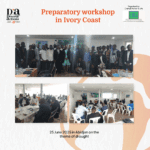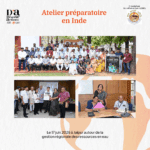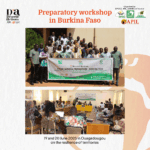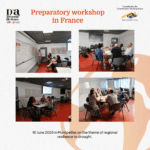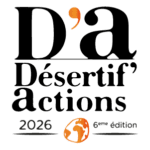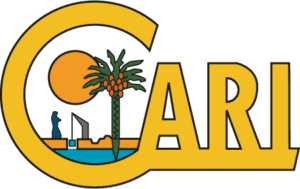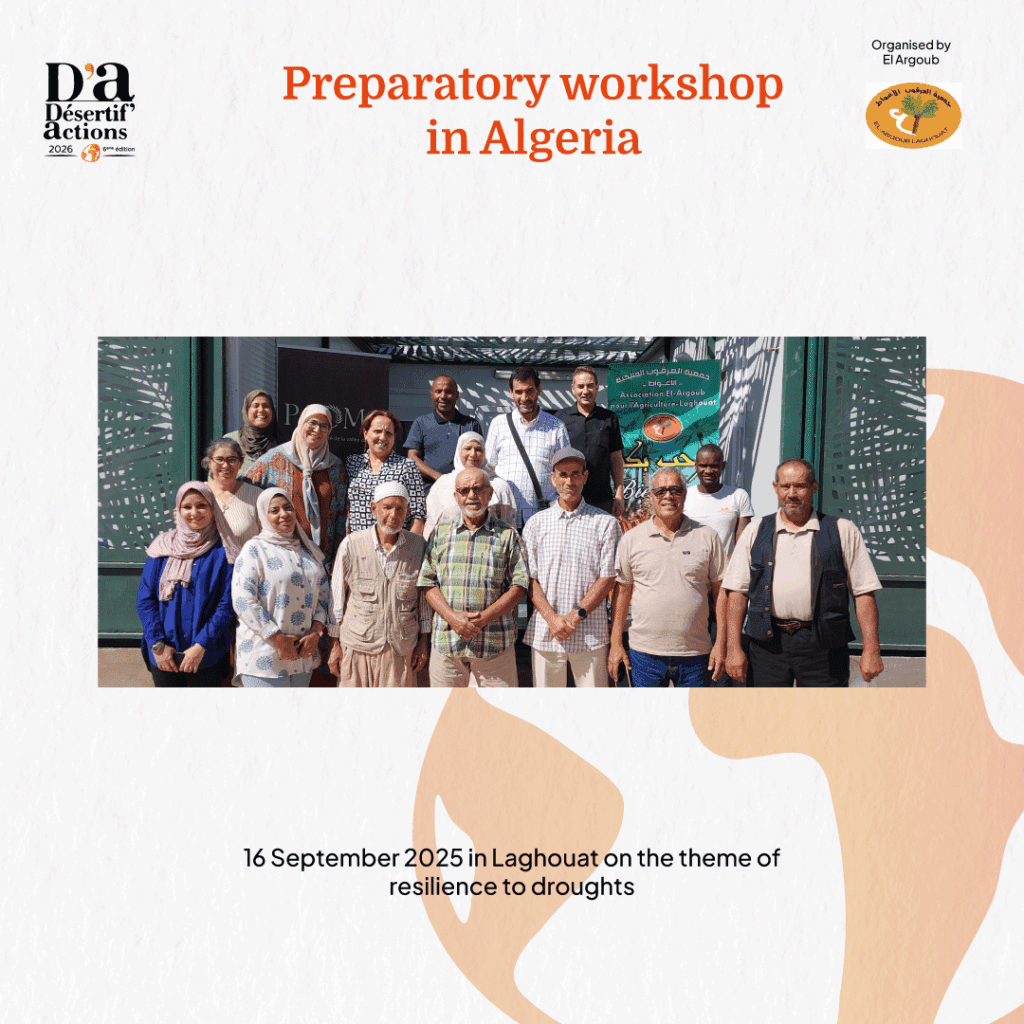
As part of the preparations for the 2026 Désertif’actions International Summit, scheduled to take place from 25 to 28 March 2026 in Djerba (Tunisia), the El Argoub Association organised a national workshop on drought resilience in Algeria on 16 September 2025.
This workshop, held in a hybrid format at the premises of the El Argoub association in Laghouat, with the participation of remote speakers. It brought together some twenty stakeholders from the agricultural sector, research, institutions and civil society to identify the technical, organisational and political levers needed to strengthen the resilience of the agricultural and pastoral sector in the face of increasingly frequent droughts.
A shared diagnosis of vulnerabilities and local initiatives
The discussions first provided an opportunity to take stock of the actions already undertaken in the field, such as:
- Promoting rational irrigation and innovative techniques to save water and improve soil water retention
- L’utilisation d’espèces rustiques et locales, mieux adaptées aux conditions arides
- The establishment of retention basins combining fertigation and fish farming
- The valorisation of agricultural by-products (palm grove waste used as fodder)
- Seasonal transhumance, essential for the sustainable management of steppe pastures
Technical, financial and institutional barriers identified
Participants then analysed the obstacles and drivers for the dissemination of these initiatives.
The main obstacles identified relate to:
- Limited access to efficient irrigation technologies and suitable seeds
- Insufficient and poorly targeted funding, particularly for small-scale agriculture
- Governance remains centralised, hindering consideration of local realities
- A lack of coordination between institutions, researchers and farmers
To address this, several measures have been proposed:
- Decentralising agricultural governance
- Establish dedicated financing mechanisms for smallholders
- Strengthening extension and training
- And promote precision farming technologies (smart agriculture) to better manage water resources.
From observation to action: structured advocacy proposals
In a participatory process, participants developed advocacy messages for public decision-makers, donors and economic actors.
Among the key recommendations:
- Facilitating access to irrigation technologies and simplifying administrative procedures for farmers
- Systematically involve producers in the development of agricultural policies
- Develop research on drought-resistant seeds and water-efficient farming practices
- Create an agricultural calendar by ecoregion, tailored to the specific climatic conditions of the country.
- Establish a national fund for local agricultural innovation
- Strengthen training and extension programmes on agroecological and climate-smart practices
These messages converge towards an integrated approach, combining technological innovation, institutional decentralisation and the participation of actors in the field.
Three key messages for national advocacy
At the end of the discussions, three consensus messages emerged:
- “Water is our blue gold, our shared heritage – let’s not let it slip through our fingers!” by advocating for rational and technological use of water.
- “Faced with the climate challenge, let’s sow the seeds of resilience!” by developing and promoting drought-resistant seeds.
- “Reforestation of our steppes means securing the future of our livestock farmers!” by restoring and sustainably managing steppe grazing lands.
These guidelines illustrate the collective desire to place agricultural and pastoral resilience at the heart of national policies, in a context where desertification directly threatens food security and social cohesion.
Find all the recommendations in the full workshop report (in French)
